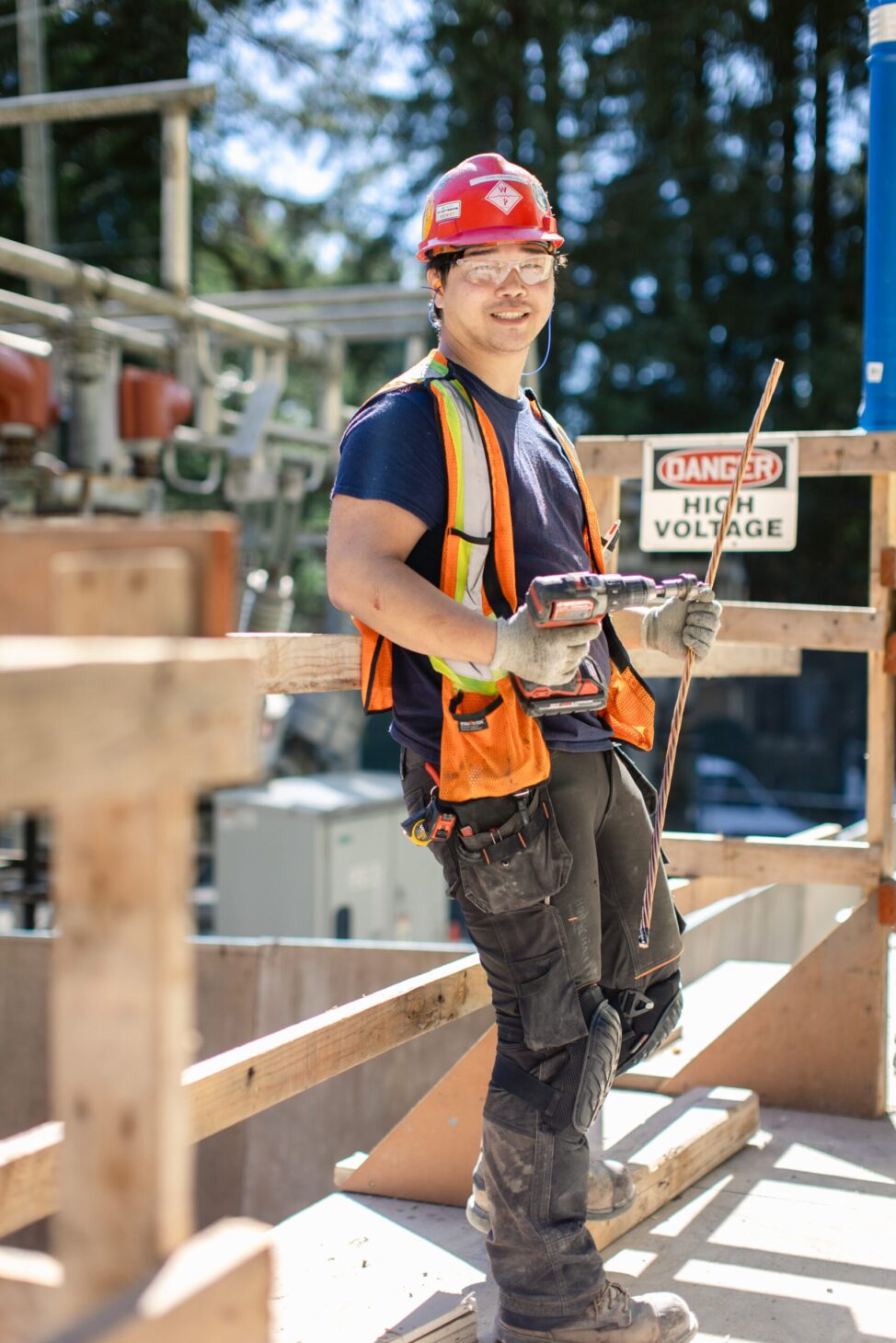
The British Columbia government established the Industry Training Authority (ITA) in 2003 to manage apprenticeships, set program standards and increase opportunities in the trades field through a non-compulsory skilled trades credentialing system.
Although the strong and effective system offered multiple pathways for individuals to achieve certification, in 2019, the Ministry of Advanced Education and Skills Training began to explore ways to encourage others to take up trades careers in the future and support those currently working in them. A Stakeholders Advisory Group was established to determine how to implement a mandatory trades training system that would formally recognize the skills of current and future trades workers, boost prestige for the trades and help draw more people to trades careers.

On Dec. 1, 2022, the ITA transitioned to a new organizational name – SkilledTradesBC – with a mandate to lead and co-ordinate training and credentialing through mandatory certification and focus on three areas for advancing B.C.’s skilled trades system.
Recognition
“Essentially, it’s the same organization – [it’s] here to serve apprentices and sponsors, help promote the skilled trades and get more people into the trades while continuing to lead funding and co-ordination,” said Jenny Duncan, director of external relations at SkilledTradesBC.
“The new name brings attention to the organization’s mandate and helps people who aren’t involved in the industry better understand that it exists specifically to support and represent the province’s skilled trades. We’re raising the profile of the skilled trades, working with industry, government and partners to grow that awareness of the trades, and remove barriers to bringing more Indigenous people, more women and other [underrepresented] groups into the trades. This is one area of focus that isn’t new, but is increased.”
Modern training and certification
“We also are focusing on our approach to trades training, taking on a modern digital strategy,” Duncan said. “Recently, we launched a new customer portal on our [website] that is much more accessible so that people from around the province can connect with us any time of day.”
Until SkilledTradesBC came into existence, B.C. was the only province that didn’t have a mandatory trades certification system. Although all trades have a certification pathway, it wasn’t required to have a certificate to be employed. Under the Skilled Trades Certification, uncertified workers in selected occupations will have a one-year transition period to seek qualification – either through registering as an apprentice or challenging a certification.
“We are all looking at the same issue: the labour shortage now and in the future. We want to help find ways that we can all connect, work together and tackle problems.”
Jenny Duncan, SkilledTradesBC
Duncan says they immediately began an implementation period for certification of two groups of trades, chosen because they are in high demand, contain relatively low numbers of uncertified workers and are regulated by other organizations for safety and workmanship. Both trades workers and employers must meet all requirements.
By Dec. 1, uncertified workers must either register as an apprentice, challenge a level exam and register for the most appropriate apprenticeship level, or challenge a certification exam to become certified. Seven trades are included in this first round of certification. They have a year to move into the new system: construction electrician, industrial electrician, powerline technician, refrigeration and air conditioning mechanic, gasfitter A and B, steamfitter/pipefitter and sheet metal worker.
Apprentices can continue to train to be certified journeypersons and seek certification through the B.C. authority. Those already certified don’t need to seek a new certificate. Employers must ensure workers are registered apprentices or certified journeypersons as of the 2023 deadline. They must also meet the prescribed supervision ratio and keep all employee qualification records.
“Employers need to make sure that, if they hire people, they are either part of the apprenticeship system or help them get into the certification pathway,” said Duncan. “There are a couple of different ways we can help employers and workers see where they are in their career journey, and where they can go to get qualified at their current level. Not all will have to start at the beginning if they can demonstrate experience.
“We’ll be on-site to make sure employers are there supervising and that people are receiving the best training. There is already a high quality of success in the system; this is just to ensure there is a bit more rigour in certain trades. Also, we want to ensure our apprentices are able to access good training, that journeypersons are supporting them and giving them the right supervision, so they are able to grow and understand the full complexity of the job.”
Industry-wide support
SkilledTradesBC has increased the support and mechanisms to certify professionals. For example, trade qualifiers – those who have worked in the trades for several years, but for various reasons didn’t complete certification as a journeyperson – can have their relevant trades-related work experience, skills and knowledge assessed against the standards for certification through online assessment tools and low-cost exam preparation. In addition, accommodation requests based on individual needs, such as using a translator, translation dictionary, reader or requesting additional exam time, can be submitted through the SkilledTradesBC portal or exam accommodation request form while scheduling an exam.
SkilledTradesBC offers regularly scheduled exam sessions throughout the year in B.C., and exam fees for Skilled Trades Certification will be waived until the enforcement date to encourage workers to get on the pathway to certification. Additional funding will increase apprenticeship training seats and certification support over the next three years.
“A main focus of our organization is looking at the industry, its outlook and helping to understand its needs – which trades may have more jobs coming up, need more training, more people coming in,” Duncan said. “So working with training providers and designating new training providers for the skilled trades is definitely part of our role.
“We work with recognized training providers at locations around the province to make sure they understand the program outline when submitting their curriculum plan. We already have great relationships with private and post-secondary institutions that want to deliver training.”
An expanded apprenticeship advisors’ team will bring increased regional representation, and focus on removing barriers and providing customized support for individual apprentices. Also, a new dedicated team of Skilled Trades Certification advisors, set up across the province, will enhance worker and employer supports.
“We are all looking at the same issue: the labour shortage now and in the future,” said Duncan. “We want to help find ways that we can all connect, work together and tackle problems. We’ve seen encouraging numbers in certain places, but we still need to get more people into the trades. Our new equity, diversity and inclusion strategy is soon coming out, linked to our strategic plan, looking for ways to get more women, Indigenous people and underrepresented groups into the skilled trades. There are already some great programs out there that we support, but we think there’s a need for more. Everyone should feel safe when they go to work, and we all have to work together to achieve that.”
Working collectively with industry, SkilledTradesBC wants to level the training playing field so that everyone has a great experience and is ready for what comes. This is an opportunity for skilled tradespersons to achieve certification, have their skill set recognized and know they are part of something prestigious and valuable to the community.